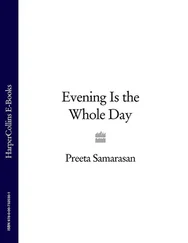“Dad. Can’t we just get a house like everyone else and not hide it?”
“Nah.”
No one could talk him out of it, not me or Eddie and especially not Dr. Greg, who learned the truth when Dad went back for a checkup. He told Dad in no uncertain terms that a labyrinth wasn’t the Great Australian Dream, which is quite right, it isn’t, but in the end no one objected too strongly, because no one but me really thought he would actually build it.
We went looking at properties out of Sydney in all directions, and each time he dashed out along the property lines, exploring the bushland, nodding his head approvingly at the trees and the space and the potential for solitude. The houses themselves seemed to be unimportant to him, and he took only a cursory look through them. Colonial? Federation? Victorian? Modern? He didn’t care. He only required that the house be surrounded on all sides by dense bushland. He wanted trees and bushes and rocks fused together, bushland so dense that even without the labyrinth walls, the natural landscape would be almost impassable.
While searching for the perfect site, he accumulated dozens of mazes from everywhere from puzzle books to old manuscripts of the labyrinths of antiquity, from Egypt to medieval England, using them mainly as inspiration, not wanting merely to copy an existing design. He labored furiously in pencil to invent a complex pattern of his own imagining that he would actually reproduce on the land. This was his first major step in altering the existing universe with his own brain, so he obsessed about the structure of the house: not only did it need to be locked up in the protective custody of the maze, but it had to serve as a palace of thinking, where Dad could wander and plot without interruption- a base for his “operations,” whatever they were. He also wanted dead ends and passages where an intruder, or “guest,” would be forced into making several critical choices between paths, resulting in disorientation and/or starvation and madness. “The unpassable path!” became his new motto. “Bloody hell!” became mine. Why? Those designs stalked my nightmares. It seemed all our future disasters were prefigured in them, and depending on which he chose, we would suffer a different disaster. At night I pored over the designs myself, trying to read our impending calamities in them.
One afternoon we went to inspect some land half an hour northwest of the city. To reach the property you had to take a private road that was a long wiggling dirt track, over which you had to bounce unevenly through burned-out forests, their charred tree trunks a warning: by living in the bush, you are living in a war zone during an unreliable ceasefire.
The property seemed custom-built for his purpose: it was dense, dense, dense. Hills with steep climbs and sudden descents, twisting gullies, large rocky outcrops, winding creeks you had to wade across, a foliage of thick scrub and waist-high grass that would require special footwear. As we surveyed the property we got lost straightaway, which Dad took as a good sign. Standing on ground that sloped gently downward, he looked at the dirt, the trees, the sky. Yes, he even examined the sun. He looked right into it. He turned to me and gave me the thumbs-up. This was the one!
Unfortunately, the house wasn’t subjected to examination at all. Me, I would’ve failed it mercilessly. It was a drafty, dilapidated old thing- no more than your classic two-story shoebox. The shag carpet was thick and ugly, and crossing the living room floor felt like walking on a hairy chest. The kitchen stank like a toilet. The toilet, covered in moss, looked like a garden. The garden was a cemetery for weeds and dead grass. The staircase creaked like drying bones. The ceiling paint had dried midbubble. Each room I encountered was smaller and darker than the room before. The upstairs hallway narrowed as you moved down it, so much that the very end of it was almost a point.
Worst of all, to get to school I would need to trek a half a kilometer through the maze, then down our long private road to the nearest bus stop so I could travel twenty minutes to the train, then ride a further forty-five minutes to the coast, where my school was located, but the bus came only three times a day, only once in the morning, and if I missed it, I missed it. I rejected Dad’s suggestion that I move to a new school in the area, because I couldn’t be bothered with the hassle of making a whole new set of enemies. Better the bully you know, I reasoned.
Dad signed the papers that afternoon, and I had to accept that this insane folly was going to happen. I knew I wouldn’t last long in exile on this property, and it was only a matter of time before I’d have to move out and leave him alone, an uncomfortable thought that made me feel wretchedly guilty. I wondered if he realized it too.
He wasted no time hiring the builders, and the fact that he was not the kind of man who had any business at a building site (even if it was his own) did not stop Dad from aggravating them. They gritted their teeth as he passed on his gigantic compositions. Dad had adjusted his maze designs to fit into the natural configurations of the landscape and insisted that few trees were to be harmed. He had narrowed down his mazes to four, and instead of reducing the choices to one, he incorporated them all in one section of the property or another, so that four equally confounding conundrums were to be forced onto the land: mazes within mazes, and in the center our rather ordinary house.
I won’t go into all the dull details- the zoning ordinances, the building codes, the delineation of boundaries, the delays, the unforeseen problems like hailstorms and the unrelated disappearance of the builder’s wife, but I will say the labyrinth walls were constructed from hedges and countless rocks and massive stones and boulders and sandstone slabs and granite and thousands and thousands of bricks. Because Dad mistrusted the workmen intensely, he broke up the design and gave each section to a different team to construct. The men themselves frequently got lost among the thousand alleys and paths that emerged, and Eddie often joined us on our search parties. He would always photograph their irritated faces when we found them.
Gradually, though, the tall stone walls and oversized hedges were erected, and the house was hidden from sight. A synthesis of house and shell. Psychologically complex. Virtually inaccessible. We moved inside, willing victims of Dad’s vast and hazardous imagination.
***
When Anouk came back from Bali, she wasn’t surprised so much as absolutely furious that she’d missed everything: the collapse, the home for children, the mental hospital, and the building of this outrageous place. But, incredibly, she came back to work as if none of it had happened. She made Dad install an intercom system so that when she or any wanted visitors arrived, we could go and lead them through the maze to our fortified homestead. I’ll never understand that woman, I thought, but if she wants to cook and clean in a place of endless wanderings, that’s her choice.
So this is where we lived.
We were cut off and had only the natural sounds of the bush to placate, stimulate, and terrify us. The air here was different, and I surprised myself: I loved the quiet (as opposed to Dad, who developed the habit of leaving the radio on all the time). For the first time I felt the truth that the sky begins a quarter of an inch from the ground. In the mornings the bush smelled like the best underarm deodorant you ever smelled, and I quickly got used to the mysterious movements of the trees, which heaved rhythmically like a man chloroformed. From time to time the night sky seemed uneven, closer in points, then smoothed out, like a tablecloth bunched up, then suddenly pulled taut. I’d wake up to see low-lying clouds balanced precariously on the tops of trees. Sometimes the wind was so gentle it seemed to come from a child’s nostril, while other times it was so strong all the trees seemed held tenuously to the earth by roots as weak as doubled-over sticky tape.
Читать дальше












